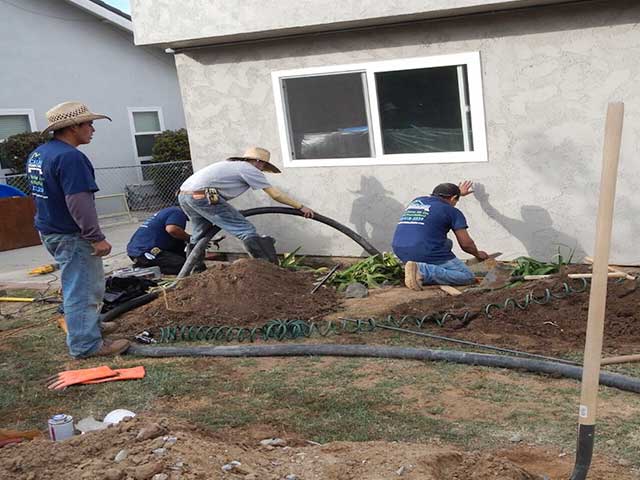Which One Fits Your House?
The type of foundation each house is built on mostly depends on the soil type of the house construction site and the type of climate in that area also affects what type of foundation the house will have.
Some types of house foundations will not do very well in wet weather or cold weather hence the need to consult an engineer before deciding on which foundation is best for you.
There are three main types of house foundations, raised foundations with crawl space, concrete slab foundations and basement foundations, and each one of them is suited to particular conditions.
Related : Foundation Solutions
Raised Foundation With Crawl Space
Crawlspace foundations are also known as raised foundations and are one of the best foundation types that a house can be built on.
Crawlspace foundations are foundations that are raised from the ground by at least 18 inches using piers and beams or the stem wall.
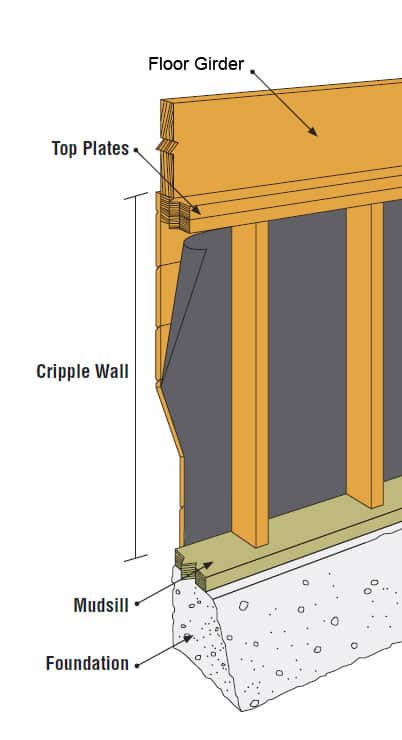
Crawlspace foundations are usually a common site in damp areas or areas that easily flood to prevent water damage to the structure and to also prevent an infestation from rodents that thrive in damp areas.
Crawlspace foundations have certain advantages such as being less costly than basement foundations, easier to maintain plumbing, heating, and air conditioning because of the accessible space in the crawlspace.
Related: Crawl Space Vapor Barrier
Homeowners!
We offer you a FREE Foundation inspection
Schedule an appointment now (323)418-2239
Concrete Slab Foundation
A slab foundation is a type of foundation that is poured directly on the construction site. A concrete slab foundation is a thick flat slab that is reinforced with steel bars and wire mesh, and the slab is poured on crushed gravel which levels the site.
Concrete slab foundations are suitable for warm climates because cold weather is likely to crack it.
Related : Slab Crack Repair
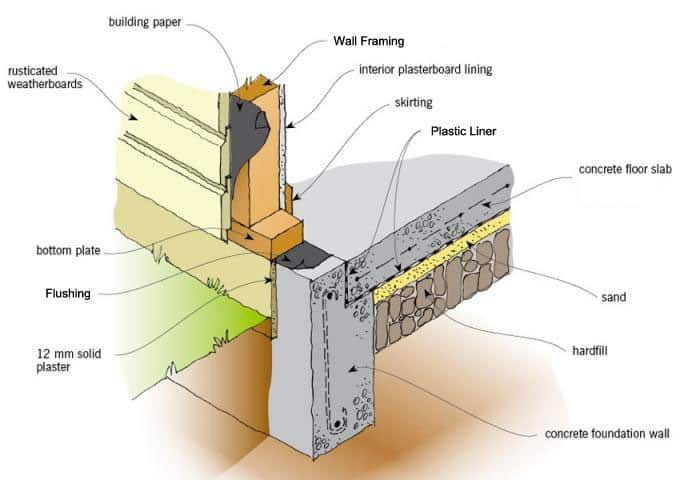
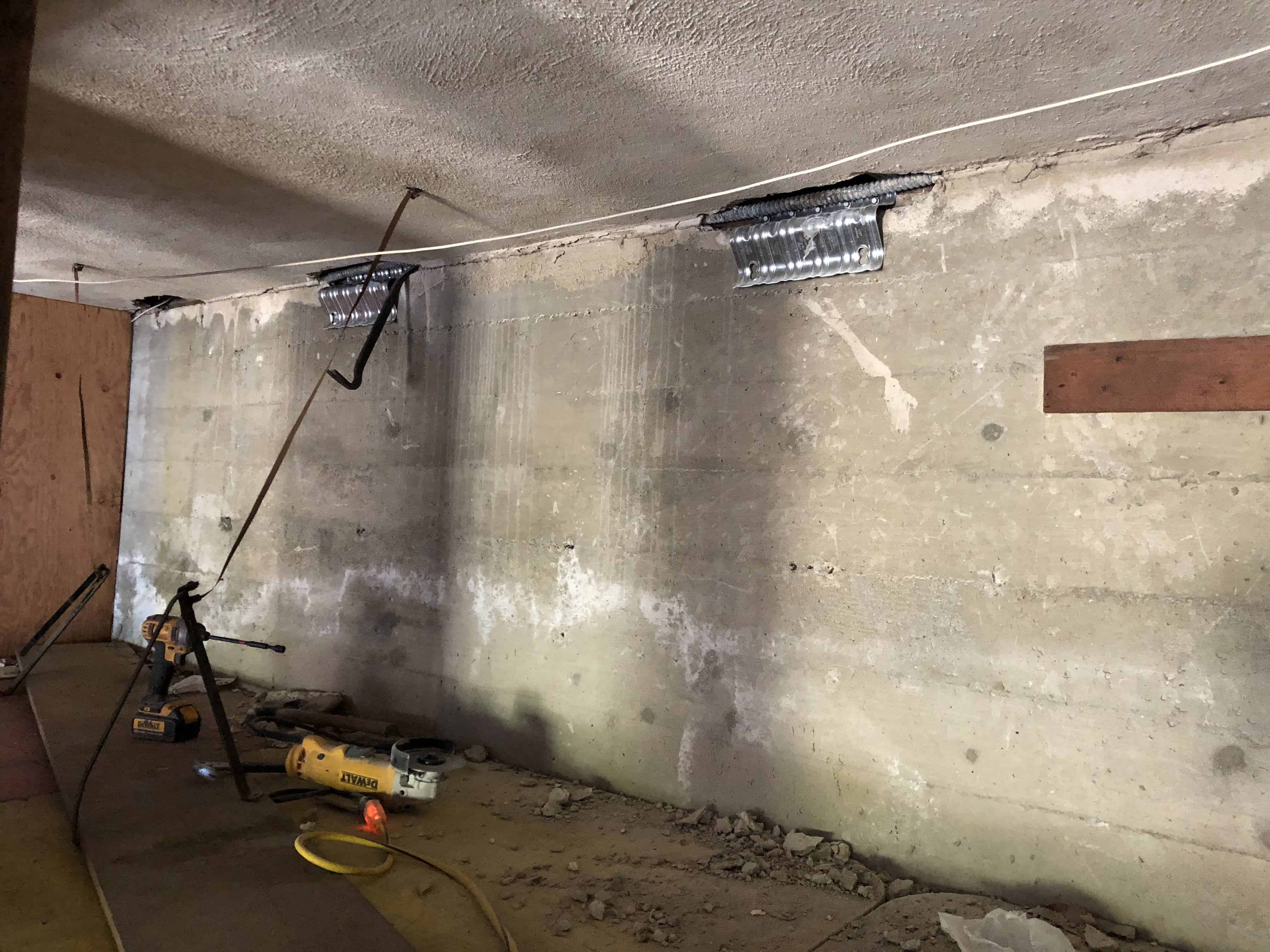
Basement Foundation
A basement foundation is a type of foundation with a high foundation wall and then a slab at the base. Basement foundations can either be at room height where people are able to walk and stand upright just like regular rooms or it can be a partial basement.
The walls and slab are properly reinforced and also waterproofed to prevent any water or property damage in the basement. Unlike other types of foundations, basement foundations can be turned into living spaces or for storage.
Related: Seismic Retrofit House Bolting
Post and Pier Foundation
Another method of house foundation is a system that is built from wood posts connected to concrete piers that are set into the ground, distributing the weight of the building through the connecting beams. Overall it is an easier system to build and less expensive than the more common perimeter concrete foundation. It is appropriate only for houses in areas with a low likelihood of seismic activity or very strong winds since the posts sit closer to the surface of the ground.
Related: Post and Pier Repair
Caissons and Grade Beams
Caissons and grade beams are a strong foundation type that is most commonly used in a hillside home stabilization.
This type of foundation is the best system to use when other foundation types are incompatible with the conditions.
This foundation support system includes mixing concrete and reinforced steel (rebar) into a deep shaft hole that is drilled into the soil unto the targeted bedrock.
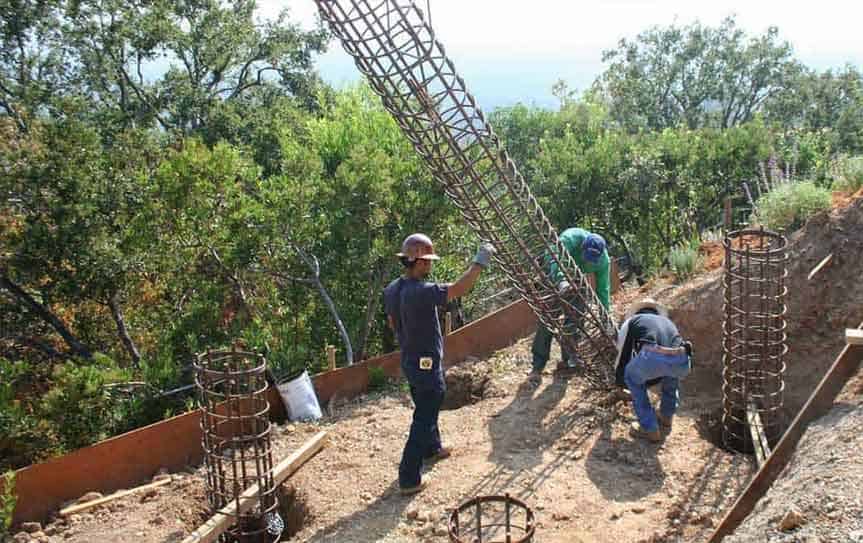
This system is a permanent sturdy substructure that protects from soil collapsing and water pressure and allows for excavation to proceed while it is being sunk into position. An easy way to identify it is to look for round looking columns of concrete around your home. If your house is on a hillside, most likely you have caissons and grade beams in place.
Related: Caissons and Grade Beams

DON’T HESITATE, GET STARTED TODAY WITH YOUR FREE* CONSULTATION
See Signs That May Indicate Foundation Problems?
Call Us Today For A FREE Inspections To Your Foundation.
Please fill out the form below and our representative will contact you within 12-24 hours to schedule a free* inspection.

